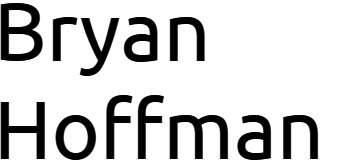There are a lot of self-defeating and fatalistic statements that quietly pervade our thinking. Some of these get repeated to the point of cliche, and are nearly axiomatic. These things need to be remedied before we go on living our lives never questioning some of the harmful things we take as fundamental. One of these things is the inability to learn a foreign language that purportedly sneaks up on us with age. There are white lies, half lies, plain lies, but this one is a damn lie. Upon closer inspection, it reveals something truly startling.
There is some truth to the line of reasoning regarding neuroplasticity. It’s true infants have a greater degree of plasticity than adults, but to think that this goes away is ludicrous! The brain is inherently plastic; it is always able to change and mould itself into something novel. This is how it accomplishes the act of learning!
I also rarely see it mentioned that an infant is living in a 24/7 immersion classroom, while adult language learners get sometimes less than ~30 minutes a day in their target language. Yet, when we don’t see results, adults are all too liable to lament they missed that crucial window. If only they’d started before they were 8 or 7 or 6… basically any number less than their current age.
But here’s the silly thing: Adults are actually better at learning languages than babies are. Imagine a university student taking 4 semesters of Spanish and only then having comparable speaking ability to a two-year-old.
It’s true that if you don’t learn a language by a certain age, you may never be able to get rid of your accent. This is often fairly minimal though, unless the language has sounds that aren’t present in your first language.
So what’s the deal? What gives? How has such a consensus evolved surrounding this alleged inability of adults to learn new languages? I’ll offer a theory.
Children learning Spanish might say “butt” instead of “potato” and it’s absolutely, down-right hilarious. They laugh and laugh and probably spend the next five minutes repeating “butt potato” over-and-over. An adult making the same mistake might turn beat red and demonstrate a significant reduction in willingness to talk for some period of time. Shame and embarrassment make the adult unwilling to try expressing themselves in new ways or use words or phrases that they don’t yet grasp entirely. But the way to 100% mastery is through making errors and correcting understanding through feedback. By reducing their willingness to talk, they’ve reduced their opportunities to receive feedback, and consequently their rate of progress.
When it comes to cliched statements that are just plain wrong, I think that this one is important. While it’s a pet-peeve of mine hearing: “We only use 10% of our brain — what if we could use 100%?”, it’s relatively benign. To think that we’re not living up to our full, human potential is probably true — even if it is stated using a warped view of how the brain functions. But this notion that adults simply can’t learn a language — this is fatalistic non-sense that need to be stomped out. The saying might be confined to language learning, but the thinking is pervasive. A willingness to make mistakes and occasionally look like a fool is necessary, but very rewarding. It’s not too late to learn a new skill, but it comes at the cost of being a novice again and making novice mistakes. Learning happens through a mixture of positive and negative feedback, but by adulthood, all-too-often we’ve had a crippling fear of negative feedback instilled in us. Don’t be afraid to play the fool. Old dogs can learn new tricks!
